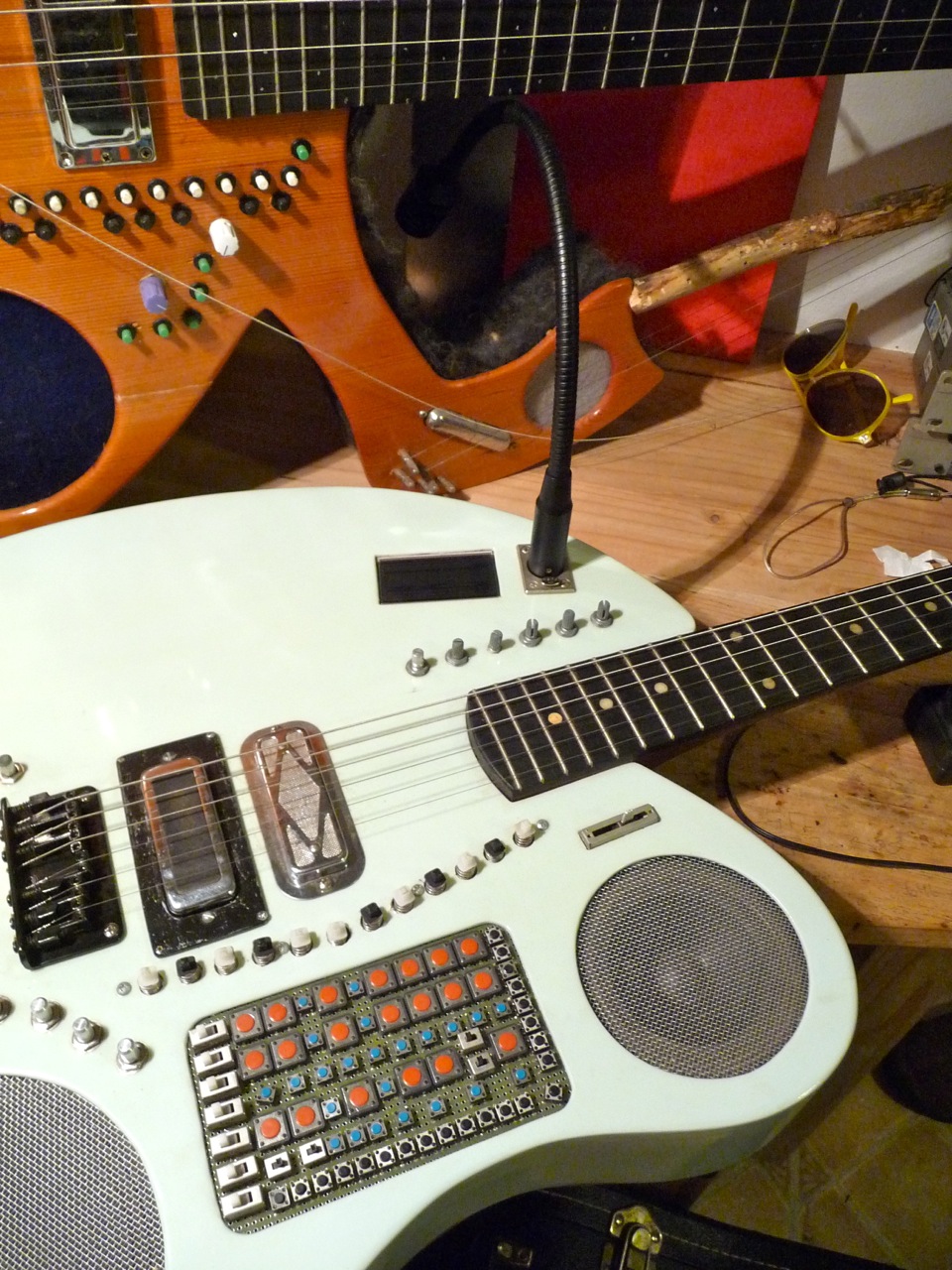AFRC 327-301
Fashioning the Black Body
R 1:30p–4:30p
Christina Bush
The fundamental query underlying this course is what is the relationship between dress, adornment, and corporeal figuring and race, specifically blackness? This course will draw upon a number of disciplines and fields including history, performance theory, cultural studies, gender studies, and queer studies to examine how blackness is fashioned, and refashioned within the United States and globally. Throughout the course we will investigate how not only race--but attendant issues of gender, sexuality and citizenship have all been constructed and contested through dress. Finally, we will explore what new and more nuanced insights might fashion, dress, adornment, and corporeal figuring offer us for understanding black subjectivities more broadly.
MUSC 018-301
Sound Artifacts: The Materiality of Musical Cultures
M 2:00p–5:00p
Lauren Flood
What is the “stuff” of music and sound? In this class, we dig past sound’s ephemeral and ineffable qualities, connecting these to the material culture behind what we hear. Topics will span recording equipment, live performance gear, ancient and modern musical instruments, archaeological artifacts, labor and work songs, artisanship and entrepreneurship, the Maker Movement and DIY cultures, electronic waste and recycled materials, architectural acoustics, ecology and sounds of nature, and “container” technologies like mp3s and rare archival record collections. Looking globally, we will ask: How do non-Western cultures source materials for instruments and conceive of the materiality of music-making? What are the roles of musical materials in times and places characterized by excess or scarcity? How do such materials circulate, and what happens when they can’t (for instance, due to international treaties, war, or power outages)? Occasionally, we will delve deeper into the science and technology that contributes to sound production. Through local field trips, we will also learn how the makers of musical materials work and how they use acoustic cues in their craft.
RELS 401 / ARTH 401
Sacred Stuff in Medieval & Early Modern Europe
W 10:00a–1:00p
Katherine Tycz
During devotional activities people engage with various objects and believe that they are imbued with religious significance. In this seminar, we will explore the material culture of religion across medieval and early modern Europe. From rosary beads and crucifixes to devotional books, prints, and paintings, a range of “sacred stuff” populated the lives of medieval and early modern Europeans. We will consider objects associated with daily life as well as rites of passage. We will study objects of Christian devotion and will consider how the advent of Protestantism and the Catholic Reformation influenced the types of objects devotees used for their devotion. In this seminar, we will discuss the material culture of Judaism and Islam, religions also practiced in medieval and early modern Europe. We will engage with “sacred stuff” from a variety of disciplinary perspectives, including art history, literature, archeology, social history, and cultural history. We will then hone these skills with visits to local museum and libraries where we will view medieval and early modern books, objects and images. Course assignments will include an in-depth analysis of a devotional object from medieval or early modern Europe chosen by the student.
HIST 231
Objects of War: The American Civil War Era
R 1:30p-4:30p
Sarah Weicksel
This seminar explores the origins, trajectory, aftershocks, and memory of the American Civil War from the perspective of ordinary Americans. We will consider experiences across the western and eastern United States, paying particular attention to the material world of everyday life as we address the practical, emotional, political, and cultural dimensions of war and slave emancipation. Drawing on local museums, archives, and the Kislak Center for Special Collections, students will access the past through primary documents, visual sources, and material culture—people's "stuff." This course traverses the history lived out by African Americans, Euro-Americans, and Native Americans in places across the home front and war front. Among the places we will consider are: military encampments and battlefields; field hospitals; household parlors; exhibition halls; new communities formed by formerly enslaved people; looted plantation houses; and damaged environmental landscapes.



